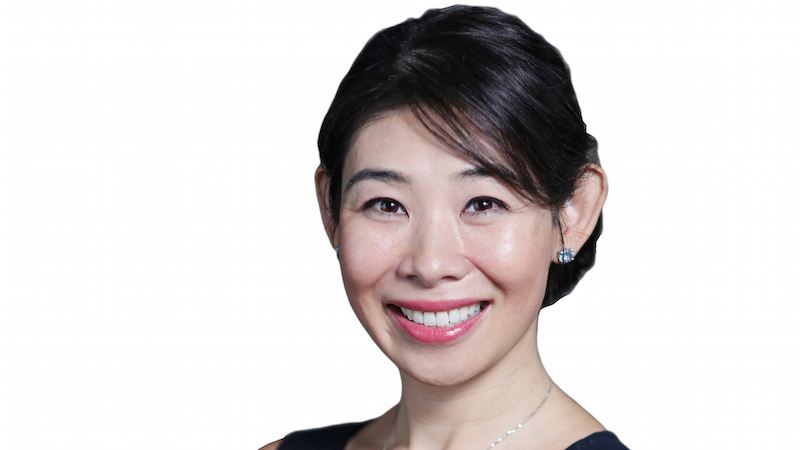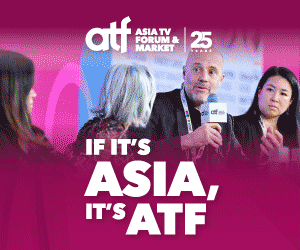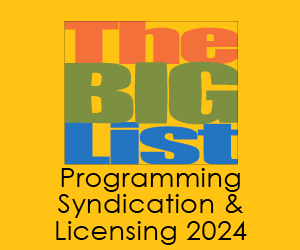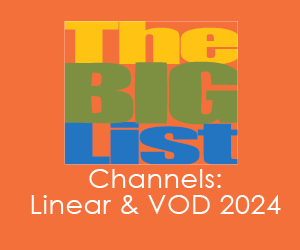
POPS Worldwide founder and CEO, Esther Nguyen, talks about taking POPS Worldwide from zero to the top digital network in Vietnam, with 2.5 billion views a month and growing, 200% growth year-on-year for the past five years, a range of content relationships with big-brand programmers from across the region, a close eye on kids with in-house production, and an ambitious music agenda.
You’re at 2.5 billion now, how are you maintaining that kind of engagement and is there a ceiling you think you might hit in terms of usage?
“We’re now at 2.5 billion a month, we’re seeing growth of 200% year over year for the past five years and it’s been amazing to see the industry in Vietnam grow and i think two factors contribute to growth in Vietnam: accessibility and diverse content programming… we see that the role market has still yet to be tapped. 4G hasn’t launched yet and soon will be so we see that there is going to be a growth in terms of accessibility just on the OTT side.”
What made you decide you were going to launch an MCN?
“I actually didn’t go into Vietnam thinking I was going to launch an MCN. It was actually the Spotify of Vietnam 10 years ago back in 2007 before Spotify existed. I just saw that the market was really passionate about music and i wanted to connect people through that passion… Cleaning up the music industry was really important to me. Educating the industry was very important – educating on licensing not just from an artist standpoint but also from a user standpoint.”
How do you connect brands and creators?
“Back in 2012 brands eyes would glaze over when we went to them. There has been a lot of movement and traction since then, working with brands to create 360 messaging on digital... we’ve made very good progress.”
In regards to accessibility, Vietnam is a unique market because...
“Vietnam is a unique market with only 50 million internet users but there is free wifi everywhere, everyone is watching content on 3G, their mobile devices or on their smart TVs, which has surpassed PC accessibility for video consumption.”
What about the online monetisation process would you like to change?
“There are two major digital platforms: Facebook and YouTube. Both are great. What I would like to change on YouTube is the distribution of monetisation – less to the platform, more towards the rights holders, to the creators, as it’s only because of the creators’ content that sits on the platform that makes it so wildly successful. So I think a change in the monetisation distribution needs to happen th...
POPS Worldwide founder and CEO, Esther Nguyen, talks about taking POPS Worldwide from zero to the top digital network in Vietnam, with 2.5 billion views a month and growing, 200% growth year-on-year for the past five years, a range of content relationships with big-brand programmers from across the region, a close eye on kids with in-house production, and an ambitious music agenda.
You’re at 2.5 billion now, how are you maintaining that kind of engagement and is there a ceiling you think you might hit in terms of usage?
“We’re now at 2.5 billion a month, we’re seeing growth of 200% year over year for the past five years and it’s been amazing to see the industry in Vietnam grow and i think two factors contribute to growth in Vietnam: accessibility and diverse content programming… we see that the role market has still yet to be tapped. 4G hasn’t launched yet and soon will be so we see that there is going to be a growth in terms of accessibility just on the OTT side.”
What made you decide you were going to launch an MCN?
“I actually didn’t go into Vietnam thinking I was going to launch an MCN. It was actually the Spotify of Vietnam 10 years ago back in 2007 before Spotify existed. I just saw that the market was really passionate about music and i wanted to connect people through that passion… Cleaning up the music industry was really important to me. Educating the industry was very important – educating on licensing not just from an artist standpoint but also from a user standpoint.”
How do you connect brands and creators?
“Back in 2012 brands eyes would glaze over when we went to them. There has been a lot of movement and traction since then, working with brands to create 360 messaging on digital... we’ve made very good progress.”
In regards to accessibility, Vietnam is a unique market because...
“Vietnam is a unique market with only 50 million internet users but there is free wifi everywhere, everyone is watching content on 3G, their mobile devices or on their smart TVs, which has surpassed PC accessibility for video consumption.”
What about the online monetisation process would you like to change?
“There are two major digital platforms: Facebook and YouTube. Both are great. What I would like to change on YouTube is the distribution of monetisation – less to the platform, more towards the rights holders, to the creators, as it’s only because of the creators’ content that sits on the platform that makes it so wildly successful. So I think a change in the monetisation distribution needs to happen there... Facebook hasn’t moved into the monetisation process [for content in Southeast Asia] yet. Maybe they will sometime in the future, but until then all of our content is on these platforms and none of us are getting paid for it, so I think that needs to change quickly.”
How do you marry commercial considerations with creative authenticity?
“With over 2.5 billion views a month, we have a lot of information; which demographic, what they’re watching, what they’re not watching, how long they’re watching for, which device they’re on... using those analytics, that data and we then work with the brands and hope they understand that these creators have a fan base for a reason... so we let them be authentic, let them be creative on their own, let them say their message in their own voice. Of course, we can’t have them going off and just saying anything, so it’s important we guide them.”
On building out the kids space and working with international kids brands...
“From the beginning when we first started until today, we’ve seen over 200% growth in our kids network, with millions of subscribers. We’ve been able to really build up the Boomerang brand and are looking to continue to do so online, offline working with brands… International content works. However, we believe that it needs to be localised, so, for instance, Scooby Doo needs to sound like Scooby Doo in Vietnamese… We believe in dubbing, we believe in localising the content...not all content will work but it is a great platform to try and see what sticks.”
What works best?
“For us it’s all about which characters can we really push and have them understand what’s behind those characters. I think that’s the most important part.”
Do you share data with your content partners?
“Absolutely. We share data with all of our content partners allowing them to see what works what doesn’t work and leading into some co-production opportunities. That’s been very important for us.”
At 2.5 billion, do you attract the attention of the authorities or censors, is there a line that you can’t cross?
“We are not censored like TV broadcasters, it’s a lot more relaxed in that sense. We do abide by the YouTube policies, we do abide by the government policies and ensure that the content is safe.”
What about going directly to your fan base?
“YouTube is a great platform but we also want that direct relationship with the consumer... we have a two-pronged approach, with a mobile app and an app pre-loaded onto Samsung Smart TVs.”
Are you planning to go pay?
“We are, but not in the very near future. I’m a firm believer in Southeast Asia of AVOD plus SVOD. AVOD because in Southeast Asia, I don’t think viewers and consumers are willing to pay and so getting the consumers onto your platform, getting them engaged on your platform, is really important and then offering something that’s quite unique that they can’t get anywhere else. Finding content that’s premium enough encourages them to pay but right now what we’re moving into is just AVOD plus telco bundle deals.”
Is there an opportunity for long-form content on POPS?
“Absolutely. In Vietnam as well as Thailand. Not everything will work, but a lot does and it’s surprising what does work. It’s about testing, taking a few titles, testing what works and what doesn’t work. We dub, we push, we have 2.5 billion views that we can cross promote on.. we believe in organic views as opposed to paid media just to see what the market really enjoys or consumes.”



















